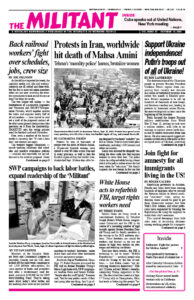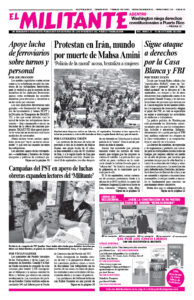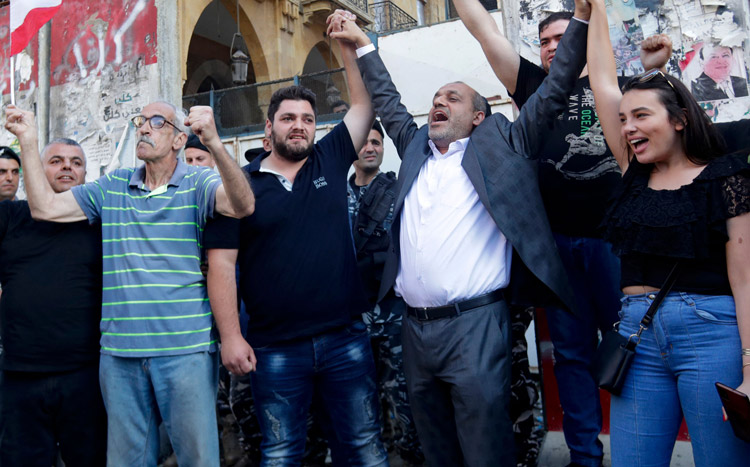Sali Hafiz, right, at May 23 protest in Beirut, instantly became a folk hero across Lebanon after she entered a bank Sept. 14 with a fake gun and demanded $20,000 of her own money. Earlier the bank denied her request to withdraw money she needed to help with a family member’s cancer treatment. She left the bank with $13,000 and an official bank receipt. “We are not criminals, we have the money, but [banks] are stealing it,” Hafiz said.
Lebanese bank directors have frozen deposits for more than two years and limit how much money people can withdraw. Most of those who deposited U.S. dollars have been restricted to withdrawing money in Lebanese pounds at much lower rates than the real value.
Hafiz’s success opened up the floodgates, with at least eight others carrying out similar actions over the following week. On Sept. 22 the banks shut their doors indefinitely. Depositors can only access their money from ATM machines in the highly inflated local currency.
Working people in Lebanon have been battered by the nation’s worst-ever economic crisis. The country’s currency has lost nearly 90% of its value, while unemployment has soared, pushing 75% of the population into poverty. The inflation rate in August was 137% over a year earlier, the highest in the world.
Pushing the crisis onto the backs of working people, the capitalist rulers there have ended subsidies on medicine, wheat and fuel. A tank of gasoline for cars now costs almost a worker’s monthly minimum wage.


